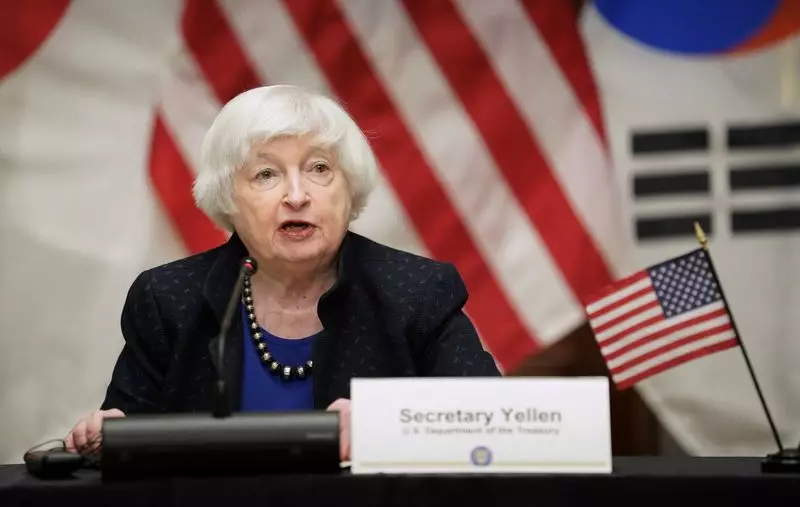U.S. Treasury Secretary Janet Yellen reiterated the Biden administration’s commitment to providing Ukraine with the necessary budgetary and military assistance. She expressed disappointment in the delays from Republican lawmakers in approving the aid, deeming them “inexcusable.” Yellen’s strong words come after a meeting with Ukrainian Prime Minister Denys Shmyhal and Finance Minister Serhiy Marchenko, where they discussed critical priorities such as global financial support for Ukraine, reform progress, and addressing Russia’s responsibility for the damages caused by its aggression.
Yellen emphasized the importance of budgetary assistance from the United States, linking it directly to Ukraine’s success on the battlefield and the government’s ability to provide essential services to its people. She noted that the U.S. and its allies have already offered substantial support to Ukraine following Russia’s invasion, with strict controls in place to ensure the proper use of the funds. Additionally, the U.S. completed an agreement with the World Bank to provide $255 million to support Ukraine’s export transportation needs and facilitate private sector investment.
Yellen highlighted the bipartisan support in the U.S. Senate for additional funding for Ukraine but criticized the lack of action from House Republicans. She stated that every moment of delay by House Republicans only serves to strengthen Russian President Vladimir Putin and embolden America’s adversaries globally. U.S. House Speaker Mike Johnson pledged to hold a vote on a substantial aid bill for Ukraine and Israel, acknowledging the urgency of the situation.
Finance officials from the Group of Seven (G7) economies pledged to explore all possible avenues to leverage frozen Russian assets to aid Ukraine. This collective effort demonstrates the global commitment to helping Ukraine in its time of need. Shmyhal, the Ukrainian Prime Minister, stressed the urgency of the situation, pointing out Russia’s relentless efforts to undermine Ukraine’s economy through attacks on critical infrastructure.
Yellen reiterated the need for vigilance to prevent Russia from acquiring the resources necessary to sustain its war efforts. She emphasized the coalition’s intent to increase the pressure on Russia through sanctions and disrupt evasion networks globally. Shmyhal echoed these sentiments, calling for enhanced sanctions targeting Russia’s military, banking sector, and nuclear industry. He also expressed expectations for the U.S. Congress to pass the “Repo Act,” granting the Biden administration authority to utilize frozen Russian assets to support Ukraine.
Both Yellen and Shmyhal stressed the importance of transparency and accountability in utilizing aid effectively. They highlighted the need for cooperation with international institutions like the World Bank to ensure that aid reaches its intended recipients without any misuse. Shmyhal underscored Ukraine’s commitment to maintaining economic stability and implementing reforms amid challenging circumstances.
The urgency of U.S. aid for Ukraine cannot be overstated. As the country faces relentless aggression from Russia, timely support from the United States and its allies is crucial to bolster Ukraine’s defenses, safeguard its economy, and uphold its sovereignty. The international community must continue to stand in solidarity with Ukraine, block Russian aggression, and ensure that aid is utilized transparently and accountably to support Ukraine’s path to stability and prosperity.

